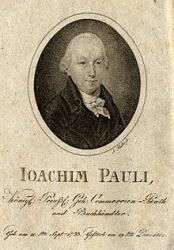1497 - 1563 Person Name: Wolfgang Meusel Hymnal Number: d347 Author of "Kriste, jenz jsi svetlo i den" in Cithara Sanctorum--Pisne Duchovni Meusel, Wolfgang, son of Anton Meusel (Meusslin, Mäusslein, Mosel, Mösel, Musculus, &c), cooper at Dieuze in Lorraine, was born at Dieuze, Sept. 8, 1497. He studied for short periods in the schools at Rappoltsweiler, Colmar, and Schlettstadt, between times wandering over the country and earning his way by his singing. In 1512 he happened to come to the Benedictine monastery at Lixheim near Saarburg, just as Vespers were being sung. His beautiful voice, as he joined in, led the monks to receive him, and here he studied music, and became organist to the cloister. In his 20th year he devoted himself to the study of theology, and soon after began to preach in the church at Lixheim, and in the neighbouring village churches. In 1518 he became acquainted with Luther's writings and embraced his views, but did not leave Lixheim till 1527, after he had declined to be elected as prior. On Dec. 26, 1527, he was formally married at Strassburg to a niece of the former prior at Lixheim. As they were without means she had to take a place as domestic servant, and he, after trying in vain to earn his living as a linen-weaver, was about to attempt to get work as a day-labourer on the fortifications, when he was appointed pastor at the village of Dorlitzheim, near Strassburg. In 1529 he became diaconus of the cathedral church at Strassburg, and then, in the beginning of 1531, was sent to Augsburg, where he for some time officiated in the Holy Cross Church, and, after the Reformation had gained the upper hand, became, in 1537, chief pastor of the Cathedral. When the Interim was forced on the magistracy in June, 1548, Meusel left Augsburg. Thereafter he had to flee from place to place, residing for longer or shorter periods at Basel, Constanz, St. Gall, and Zürich. He finally was invited to Bern as professor of theology, and went there in April, 1549. In gratitude for this timely help he refused various lucrative appointments offered to him from time to time. On Sunday, Aug. 22, 1563, he felt an attack of fever while preaching at Bern, and died on the following Sunday, Aug. 29, 1563. (Koch, ii. 83; Allgemeine Deutsche Biographie, xxiii. 95, &c.) Meusel's best-known work is his Commentary on the Psalms, published in 1550. Eight hymns are ascribed to him, six of which are printed by Wackernagel, iii., Nos. 946-951. A seventh, a translation of the “Christe, qui lux es et dies," is noted at p. 227, ii. The eighth is:—
Der Herre ist mein treuer Hirt, Hält mich in seiner Hute. Ps. xxiii. This appeared in the Augsburg Gesang-Buch 1531, and thence in Wackernagel iii. p. 122, in 5 st. of 71. Wackernagel, seeing that Meusel wrote another version of this Psalm (beginning "Mein Hirt ist Gott, der Herre mein"), and that the version above was not given with his name till in the Nürnberg Gesang-Buch of 1601, gives it as anonymous. It was included in Babst's Gesang-Buch, 1545, in most subsequent collections up to 1700, and in the Berlin Geistliche Lieder ed. 1863, No. 411. In the Strassburg Gesang-Buch, 1560, and many later books, it begins "Der Herr ist mein getreuer Hirt." Translated as:—
(1) "The Lord God is my Pastor gude, "in the Gude and Godlie Ballates, ed. 1568, f. 47 (1868, p. 79). (2) "The Lord my faithful Shepherd is," in the Moravian Hymn Book, 1754, pt. ii., p. 374. In the 1789 and later eds. (1886, No. 430) it begins "The Lord my Shepherd is and Guide." (3) "The Lord He is my Shepherd kind," by Mitt Manington, 1863, p. 20. [Rev. James Mearns, M.A.]
-- John Julian, Dictionary of Hymnology (1907)
Wolfgang Musculus


 My Starred Hymns
My Starred Hymns



